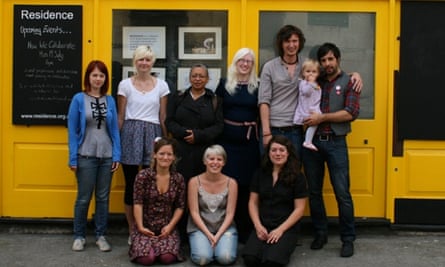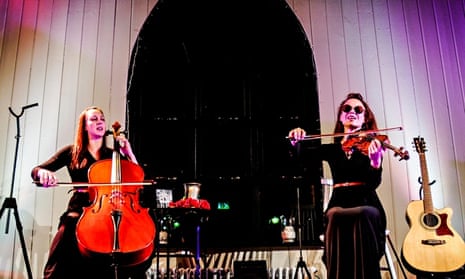This week, Cardiff got its first pub theatre, the Other Room at Porters, which launched with a revival of Sarah Kane’s Blasted. But it’s not the only thing bubbling up in Cardiff. National Theatre Wales are at the Sherman collaborating with Out of Joint on Crouch, Touch, Pause, Engage about gay Welsh rugby legend Gareth Thomas. Chapter has been hosting the international collaboration Playing the Maids; there’s been an all-female Richard III in the roof void at WMC that is also starting to self-produce, and only a couple of weeks ago I was down in Cardiff Bay for Gagglebabble’s hugely enjoyable The Forsythe Sisters. Theatr Iologoes from strength to strength, and Dirty Protest are doing much to encourage new writing. Initiatives such as the Wales Theatre Awards create a bit of a buzz and make all theatre in Wales more visible. So what’s going on?
We all know that there is a significant funding imbalance between the south east and the rest of the country. Some, Rupert Goold included, have voiced fears about what regional theatres can achieve with less money (particularly as local authority cuts kick in), dwindling critical attention, and a desperate desire to hang onto the audiences they have already got. A younger generation have lamented the difficulties of sustaining arts careers in the regions, and really putting down roots for the long term. A recent report highlighted the gap in the number of shows produced between the better funded and the less fortunate.
I don’t for a moment underestimate those difficulties or the challenges ahead. But, at the launch of the Bruntwood prize at the National Theatre a couple of weeks back, I was interested by playwright Simon Stephens’ response when he was asked about the vitality of the arts in Manchester and the value of staging the Bruntwood prizewinner there. He said he feared for the future of the arts in London as it “is becoming unsustainable as a city for artistic creativity, because it’s so expensive”.
It is. The days when all roads led to London for young artists are over, and there appears to be an exodus of artists looking south to Bristol and Cardiff and north to Manchester, Leeds and further afield to Glasgow, places which all have a creative buzz around them. Why barely survive in London when you can live far better elsewhere, find opportunities, and put down roots?

After all, despite what many politicians seem to think, not everyone thinks that they will only have made it if they reach the National Theatre. London is no longer viable for many young theatre-makers unless they have parental support in some way, and quite honestly it is no longer viable even for those much further into their careers. The danger is that as Stephens suggested that London will become “a very beautiful, empty place”. Well, certainly empty of artists.
But while that may have long term implications for London as a place real people live, rather than just bankers and Russian oligarchs, maybe that can be to the benefit of places beyond the capital. Cardiff strikes me as an interesting example of a city that seems to suddenly has a bit of a creative buzz around it. National Theatre Wales has given a significant boost to aspirations of Welsh artists and has encouraged the growth of artist networks. Maybe as one Cardiff-based artist suggested to me, the city has been eyeing Bristol – which has become something of a magnet for young theatre-makers of many kinds – and would like to emulate what has been happening there. The considerable strengths of the Royal Welsh College of Music and Drama may well be another factor. Property prices and rents definitely play a part too in attracting artists and encouraging graduates to stay.
Maybe what we are seeing in Cardiff and other cities is enough activity to create a critical mass that should in turn encourage more activity. I hope so, but if what is happening in Cardiff, Leeds, Glasgow, Bristol and other places is to continue, it requires new thinking from existing theatres, councils and funders about how best to sustain this cultural activity and reap the economic and social benefits of it. As Ben Walmsley recently observed in an excellent piece critiquing George Osborne’s conception of a northern cultural “powerhouse”, it is networks of creativity that need funding, rather than just bricks-and-mortar arts centres. Without them both, the green shoots can all too easily wither.

Comments (…)
Sign in or create your Guardian account to join the discussion